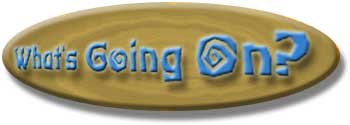
Attention aviation collectors and pilots! Seymour will host an Aviation Auction on October 14, 2000. Sponsored by the Troutman Group of Bedford, the auction will feature single and twin engine planes and will begin at 10am. Log Book inspection is available beginning on Thursday, October 12 and until the date of sale. Pardieck Aviation of Seymour will serve as the Fixed Base Operator (FBO) host. The Aviation Auction will be held at Freeman Field, which is well known for its aviation history as a training ground during World War II. The field is also home to the Freeman Airfield Museum which houses artifacts, documents, and models pertaining to WWII. For more information call Dan Troutman at 812-277-0034. For more information on the Freeman Airfield Museum, please call Ted Jordan at the Freeman Field Office at 812-522-2031 or the JCVCB at 888-524-1914. Freeman Field, in Seymour, is home to more than just the local airport and large companies. Freeman Field is a living piece of history, where you can envision the stretch of concrete runways erasing the land’s past life as endless acres of farmers’ cornfields. Airplanes with Union Jacks and swastikas joined those emblazoned with Old Glory on the airstrip. It’s easy to return to this era, that of the war to end all wars, World War II, when you visit the Freeman Army Airfield Museum. Freeman Field was activated on December 1, 1942 with 75% of the base complete. The primary mission of the Field was to train American pilots to fly twin engine planes using the wood and canvas Beechcraft AT-10. The base was also the first army helicopter training base in the United States. The school had nineteen classes from April 29, 1943 until February 1, 1945, for a total of 4,237 graduates. Freeman Field also included mechanics, nurses, WACS, WASPS, its own fire department, and all of the other personnel needed to successfully run a military base. At its peak, Freeman Field had about 5,000 people at its base. Although most of its inhabitants were from places outside of Jackson County, there were a few local pilots who trained at Freeman Field. In fact, Seymour was chosen as the site of the new airfield because of Captain Paul Preuss, a Seymour native. Freeman Field also served as a central location for mechanics and military officials to evaluate and study planes captured during the war. Among many other planes of varying nationalities, the field housed a German helicopter and a red Messerschmitt BF 108-B1 which was rumored to belong to Hermann Goering, the Commanding General of Germany’s Luftwaffe. The museum includes mementos from this bygone era such as the Airbase’s graduation announcements and dance invitations for events held at the Field for pilots and their dates. Displays have been donated to the museum by local residents and by the people who were stationed at the Field. Uniforms decorate the walls and airplane models are exhibited next to pictures of the different kinds of airplanes that visited Freeman Field during the war years. There are also pictures of the women who worked at Freeman Field. These included the Women’s Auxiliary Corps Service (WACS) who ran the air control tower and packed parachutes. A second group, the Women’s Auxiliary Service Pilots (WASPS), flew planes into the base and also flew planes with recently rebuilt engines in “slow-time”, so as to break in the engine slowly without burning it up. Unexpected, but impressive, is the array of plane parts that were buried on the base and uncovered fifty years later. One of the parts, the tail section from a German fighter plane, still has the Nazi emblem peaking out. One of the most striking exhibits is also one of the simplest. On a wall there is a picture of Fred and Nat Hovious, one of the two sets of identical twins who trained here. Above the picture is another set of photographs taken from a plane’s camera. The sequence shows Fred’s plane as it is shot down and then catches fire, leaving no survivors. Artifacts like these make a visit to the Freeman Field Museum more than worthwhile. For more information or for a tour, call Ted Jordan at the Freeman Field Airport Office at 812-522-2031 or visit the Freeman Field website at www.shelbynet.net/~military/, or call Jackson County Visitors Bureau at 888-524-1914. |
All Feature Articles, artwork and photographs ©2000 by Southernin.com. Some information on the 'County Info' pages is taken directly from brochures published by Visitors Bureaus and Chambers of Commerce.